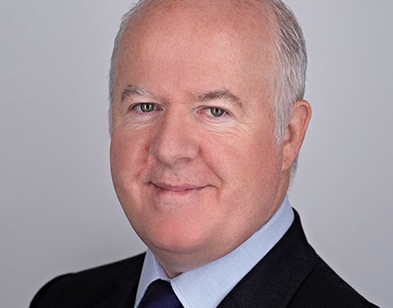Sasha Wiggins, the CEO of Barclays private banking and wealth management arm, has a job on her hands.
She’s just accepted the somewhat challenging role of chair of the government’s new retail investment campaign designed to encourage more people to invest in equities and funds.
Chancellor Rachel Reeves announced the initiative in her last Budget with the aim of encouraging those who can to invest more.
This is a laudable aim but it will be an uphill struggle without some serious incentives in play. This is simply because, in general, most Britons are not interested. They see investing as fussy, complicated, ridden with excessive rules and high charges, far from consumer friendly (at least until recently) and just not worth the faff in a word.
Most would rather invest in property or keep their cash in bank accounts paying 2% a year. That's a terrible shame but that's the way it is.
I always find it odd that a country built on centuries of entrepreneurial investment (that’s the UK by the way, in case you were wondering) has a population that is so risk averse when it comes to retail investing.
I think some of this is down to lack of understanding but it's also the class divide. Investing is seen as what posh middle class people do - 'it's not for the likes of us.'
The working classes have rarely been encouraged to invest. It's why Premium Bonds were invented as a safe haven for the masses and a method to fund government spending. There's no risk in Premium Bonds and it's why they are so popular.
A study by Abrdn earlier this year found that UK retail investments were among the lowest in the G7 and well behind the US. Only 8% of adults in the UK keep their savings in equities and funds outside pensions. Abrdn found that 50% of UK wealth was tied up in property and some 15% in cash, according to a report by Funds Europe.
If the UK followed the US (where over 30% of the population invest) trillions more would be unlocked for investment and Rachel Reeves knows this which is why she’s asked Sasha Wiggins to have a go at nudging the dial towards retail investing.
The question will be how does Ms Wiggins do this and is the approach going to be one of “stick and carrot.”
Significantly reducing the cash ISA allowance is one way to encourage more people to put money into retail investment although it cannot be guaranteed that they will do this. Many may just shift their cash into other accounts.
Ms Wiggins may conclude that more of a carrot approach would be better but how to do this? Some further incentives would be helpful but some would argue the tax incentives surrounding investment ISAs are already attractive enough. Even so, bumping up the allowance from £20,000 to £25,000 or £30,000 would encourage more investment...from the better off. You see the issue.
The hardest part will be encourage the average UK consumer to invest in UK equities and UK-focused funds. When many see better returns overseas there is little incentive to invest in the UK. Tackling this issue will be key. Freeing UK companies to invest more and grow faster is one way to encourage investment but that's another issue.
We are getting ahead of ourselves here, I suspect. Ms Wiggins and her deputy, Investment Association CEO Chris Cummings, have yet to get their feet under the desk.
Overall, I applaud the idea behind the campaign but to make it work the investment industry must also change. It must offer simple, moderate risk investment products, which the majority of novice investors will want, at a low cost and without much of the complicated processes that come with it. Online platforms are showing some of the way here.
Ms Reeves must also play her part in removing some of the barriers to investing. The success of the SIPP sector illustrates how incentivised saving products can convert millions to investing if they are attractive financially and simple to use.
• Our latest issue of Financial Planning Today magazine includes the results of our Annual Financial Planning Reader Survey. Read the issue here: https://bit.ly/3EX7Asd. You can now subscribe to the magazine to receive every issue and also upgrade to receive the glossy print edition.
Kevin O’Donnell is editor of Financial Planning Today and a journalist with 40 years of experience. This topical comment on the Financial Planning news appears most weeks, usually on Fridays but occasionally other days. Email:
> Follow me on Twitter / X at @FPT_Kevin for breaking news and key updates

